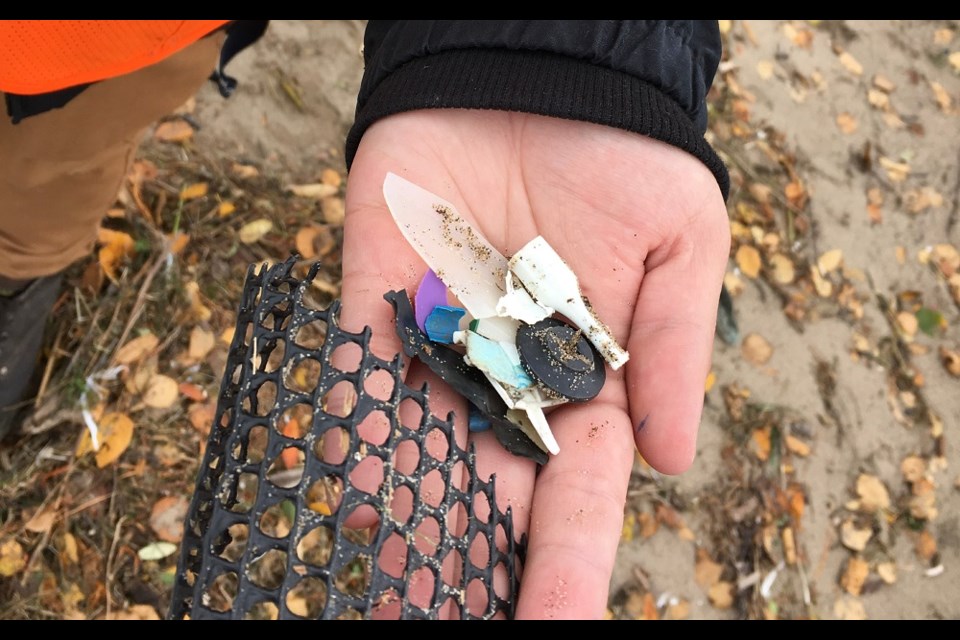THUNDER BAY — Some of the students in the Environmental Technician program at Confederation College plan to reduce their personal use of plastic after finding significant amounts of waste on the beach at Chippewa Park.
The second-year students recently took part in a survey and collection on the main beach as part of a hands-on learning project conducted in partnership with EcoSuperior.
"I can't believe how much plastic we found," said Kolten Hickman. "You don't think it's happening in your hometown until you see it on your own beach."
Hickman said the project provides students with a better understanding of the issues surrounding plastic pollution "and gives physical evidence that might open people's eyes."
The team set out to look for microplastics—particles five millimetres or less—and methodically gathered up all the surface plastics along the 220-metre-long beach.
Sand samples were taken to determine the concentration of microplastics, which will be determined on closer examination in a laboratory.
Student Jessica Tratnik already intends to change her own habits as a result of what she's learned so far. "This project has made me want to live a waste-free life," Tratnik said.
According to recent estimates, the world's oceans contain five trillion plastic items weighing over 226,000 tonnes.
Shannon Costigan, part-time professor and project supervisor with EcoSuperior, said the Lake Superior Shoreline Clean-up and Microplastics Project is aimed at connecting students as well as residents to their Lake Superior shorelines.
Organizers, she said, are encouraging people "to consider how their personal actions contribute to a highly visible global issue."
Microplastics can enter the ecosystem in a variety of ways:
- Larger plastic garbage breaks down into smaller and smaller pieces when exposed to sunlight, wave and wind action.
- Some consumer products such as exfoliating body scrubs and toothpaste contain tiny plastic microbeads that go down the drain and not all are captured at wastewater treatment plants.
- Clothing made from synthetic materials like fleece and nylon release plastic fibres when washed.
Funding for the project has been provided through a grant from the TD Friends of the Environment Fund with contributions from the City of Thunder Bay.
